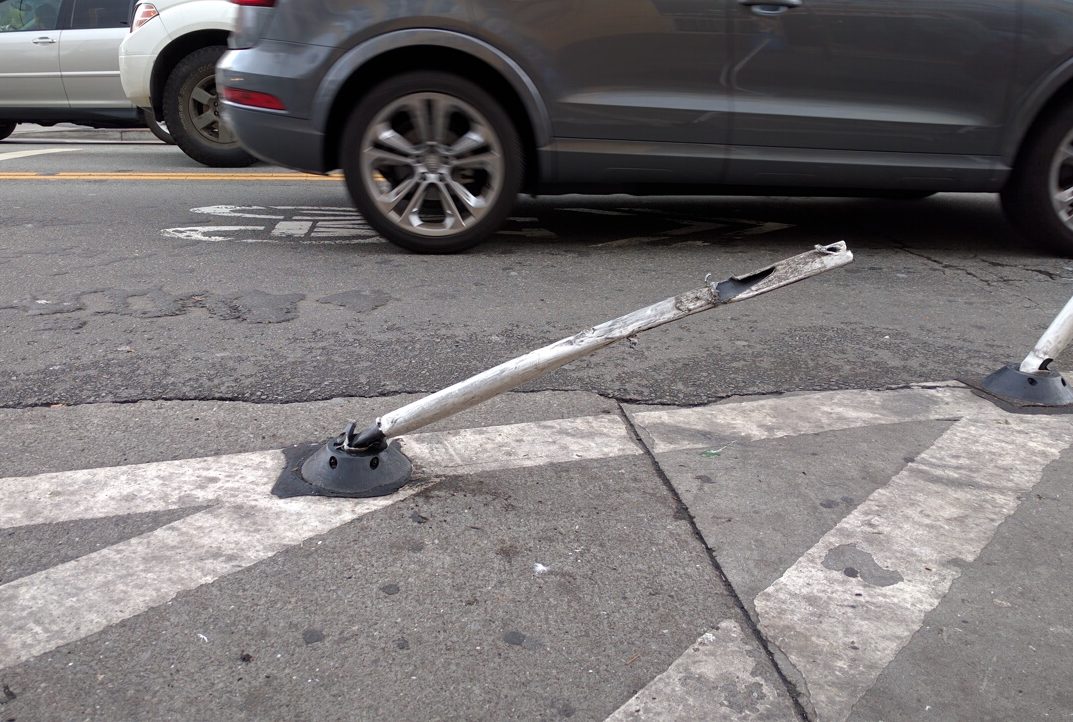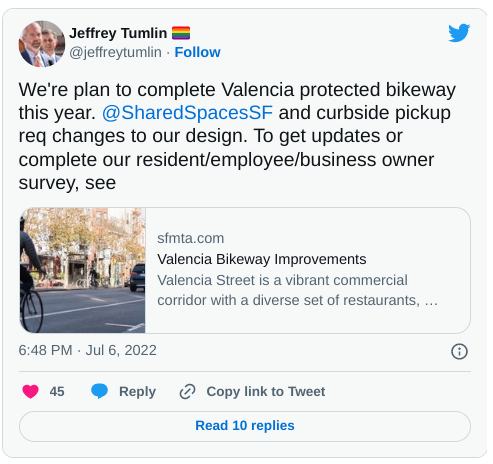On bike to work day in 2019, Mayor London Breed declared that the city would rededicate itself to building protected bike lanes. There have been legitimate improvements--such as on the Embarcadero. But it's hard to really say how many miles are getting built, because SFMTA frequently refers to post-and-paint bike lanes as "protected."
Take, for example, Evans Street and its supposedly "protected" bike lanes. Advocate and writer Kyle Grochmal, a friend of the safe-streets movement if ever there was one, tweeted the following, referring to Evans as having protected bike lanes, at least on parts of it:
Lastly, @SFMTA_Muni @SF311 please send a street sweeper to clean the protected lanes on Evans and Cesar Chavez; Bayview residents deserve some basic services and respect here. pic.twitter.com/KH9MhcWKLy
— Kyle Grochmal (@KCGrock) November 27, 2022
The need for street sweeping aside, Grochmal knows that two-pound plastic posts, as seen in the above image in the tweet, don't afford a lick of "protection" against an errant driver in a two-to-ten-ton automobile or truck. But we've all heard such sub-par installations called "protected" by SFMTA and other DOTs so many times that it's easy to find oneself gaslighted into repeating the misuse of the phrase. I'm sure there are examples in Streetsblog itself.
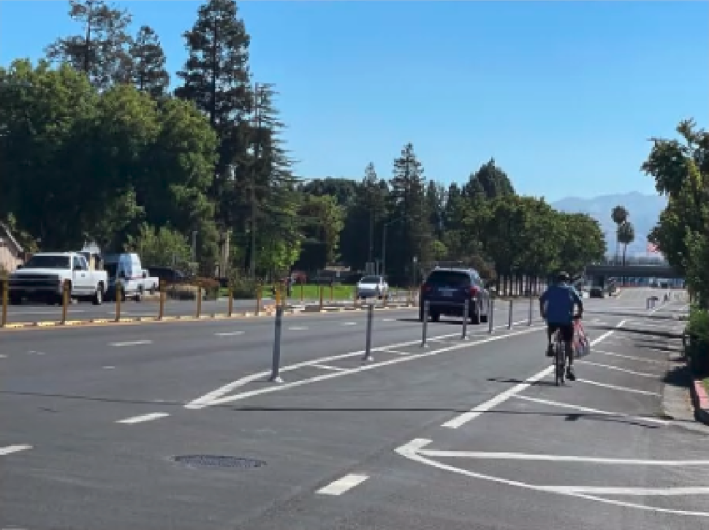
Another recent example: this week it was reported in Mission Local that SFMTA has admitted they will not build a project on Valencia Street by the end of the year. Moreover, people still want the city to build the parking-protected bike lanes they designed and presented in 2020, not the now-twice-rejected center-running unprotected lane SFMTA officials pretended was a new proposal. But in this case too, as seen in the tweet below, SFMTA's Jeffrey Tumlin called the "center running" design "protected," even though--in addition to all the other absurdities of the design--all it had in the drawings were plastic posts.
There are several dictionary definitions of the word "protect," but when one is talking about bike lanes presumably it means "to shield from injury or danger." A safe hit post doesn't do that; not any more than paint alone. Calling such lanes "protected" makes no sense.
Some confusion occurs because of quick-build, parking-protected bike lanes. Those use soft or safe-hit posts too. But the posts are not there to protect cyclists--they're there to mark where drivers are supposed to park. The row of parked cars do the actual protection (a small portion of the supposedly "protected" bike lane on Evans is actually parking-protected, but not most).
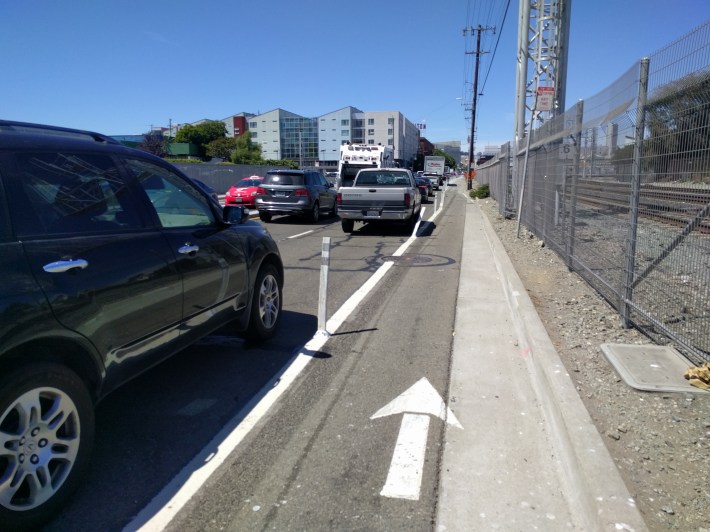
Safe hit posts also can be helpful as a last visual warning to a motorist that, hey, you're about to run into the concrete barrier of a real protected bike lane. Note in the picture below from New York: behind the van's rear tire, there are a couple of soft hit posts evidently not noticed by this distracted driver.
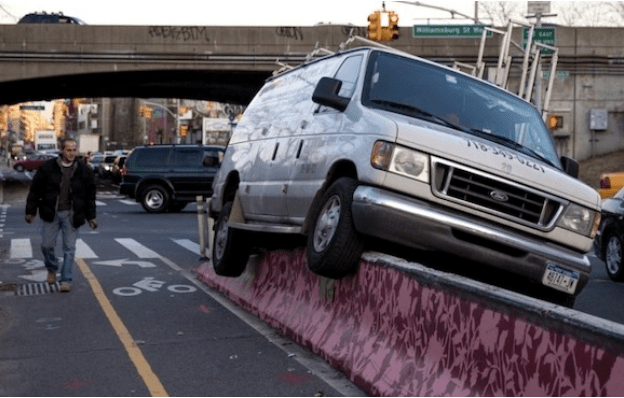
One might argue that plastic posts can be used as a template--kind of a demonstration of how things should be arranged--as long as the plan is to quickly replace them with concrete and steel. But only properly protected bike lanes, using concrete and Dutch-tested designs, save lives, even on the most dangerous stroads, as NACTO recently reported about Fremont's concrete-curb-protected lanes.
Jersey driver, meet Jersey barrier. Thanks, @NYC_DOT for protecting cyclists and pedestrians from these reckless drivers. https://t.co/miDqzYkb5k
— Streetsblog New York (@StreetsblogNYC) March 25, 2022
Last month San Francisco voters gave a mandate to build safe bike infrastructure, including real protected bike lanes and intersections. And if the continued delays on Valencia and the compromises on Evans come from the S.F. Fire Department, they should not be allowed to veto safe street designs.
So no more excuses. SFMTA needs to install real protected bike lanes and intersections on Valencia, Evans, Battery and Sansome. And they need to stop gaslighting about paint and plastic.
